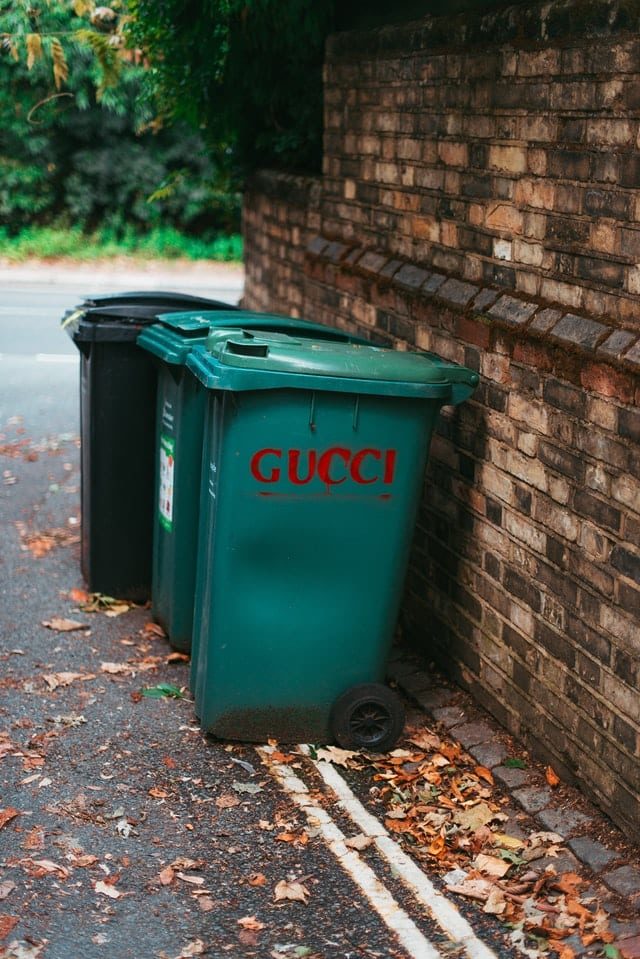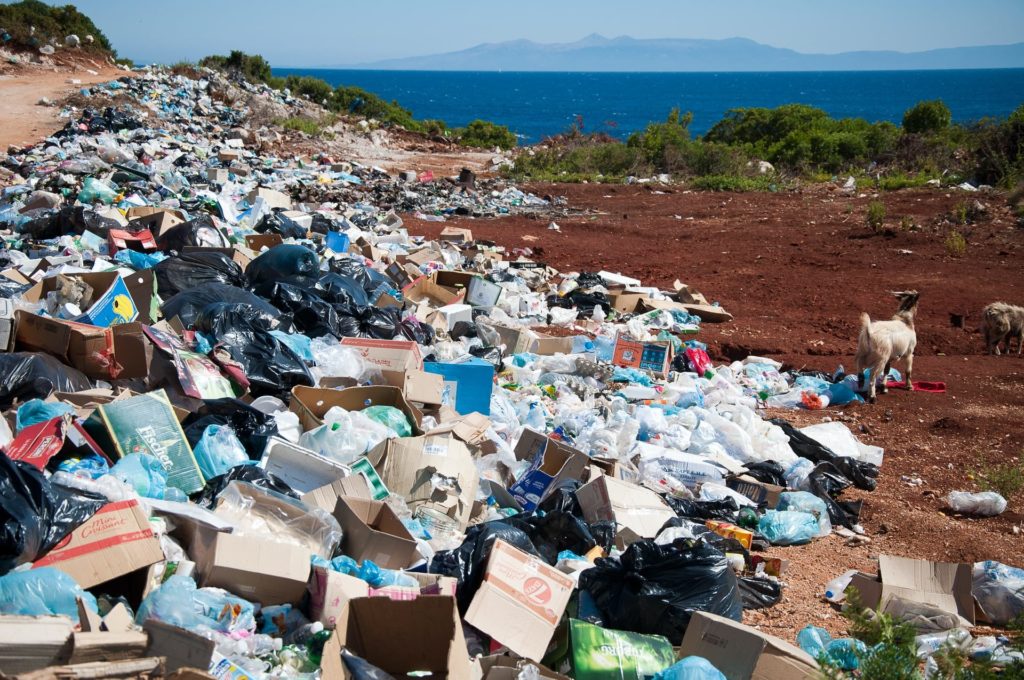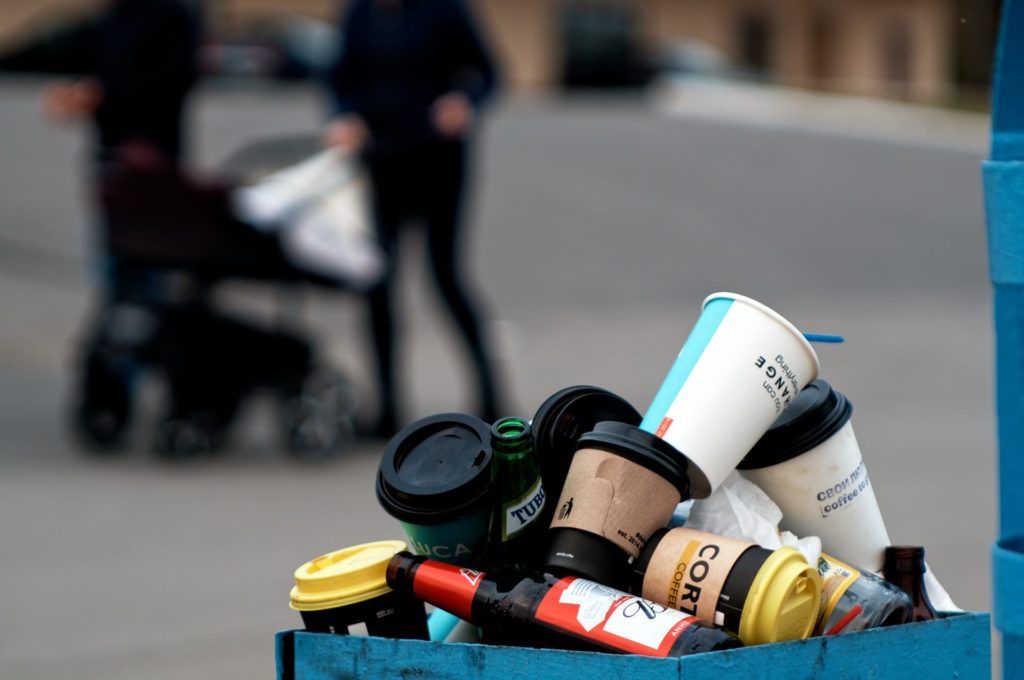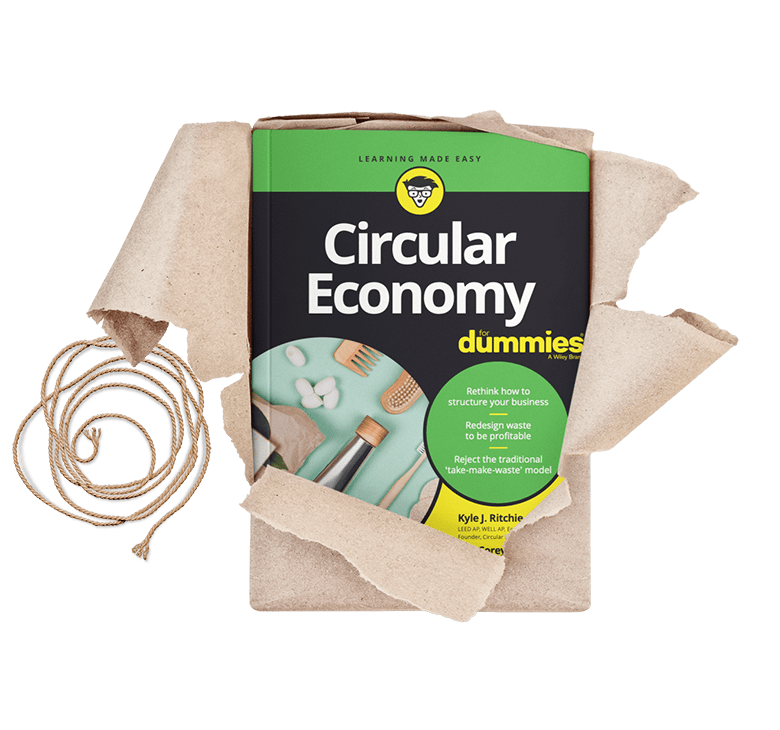Circular Perspectives for Linear Mindsets
How did linear thinking succeed in dominating our mental infrastructure? What can be done to change the linear mind-set of corporate and political leaders, and what should consumers do if they want to move away from a linear culture, linear products and a linear lifestyle?
REVOLVE Circular spoke with four innovative thinkers from India, Switzerland, Uganda and the USA to hear their circular views. Here is our interview with Kyle Ritchie, the Founder of the Circular Economy Studio and the Education Sustainable Design Lead for Cannon Design in Chicago, who is best known for his new book Circular Economy for Dummies.

Please allow us to start with a big question, or rather two: What is wrong with the linear economy? Since when?
The problem with the linear economy is it accepts the false premise that ‘waste’ – or a valueless object with no future potential to provide a service – is a real thing. But it’s not. To industrialized societies, waste is an inevitable reality for material lifecycles and a necessary tool to drive economic growth. By looking at the natural world we rely on, however, we clearly see there are no observable instances of “waste” occurring naturally – aside from heat, really. In this absence of waste, what do we see? Abundance, resilience, and environmental systems so complex even the smartest humans couldn’t replicate them. The funny part about it is our global society has accepted this idea of “waste” as a necessity to drive a flourishing economy, but the exact opposite is true: eliminating waste by simply sharing, reusing, repairing, and remanufacturing the materials already in circulation is the best way to generate economic value. The natural world is living proof.
Has linear thinking succeeded in dominating our mental infrastructure? If yes, then how?
The majority of people alive today were born into a world where ‘waste’ was as normal as air, water and color TV. So yes, without a doubt, the linear economy has completely dominated the way we mentally see and make sense of the world, as it has been an accepted facet of our lives since day #1. Which is why an alternative has never really been considered, either. The ‘Reduce, Reuse, Recycle’ mantra has been considered the optimal strategy for being “sustainable” – whatever that means – which suggests our society never considered a ‘regenerative’ way of life as realistic. That’s why we continue to happily support companies that generate pre-consumer waste, we willingly purchase products that have no potential for reuse, repair, or recycling, and don’t bat an eye at the fact that the Nirvana T-shirt we bought 20 years ago still exists somewhere. If people understood the actual value that stems from a circular and regenerative way of life, the linear approach to lifecycle management would have been left in the past, in a world of black and white.

For change to happen, who needs to educate our political and corporate leaders, and on what? Or is it the consumers who need to change first?
It is important to acknowledge what I consider a pretty simple truth: we cannot rely on individuals to make the ‘right’ purchasing practices and change their buying behavior without a proper incentive in place. This isn’t to say humans are inherently bad and selfish; I’m simply saying if we could solely rely on the individuals of this world to shape a brighter future, we wouldn’t still be utilizing Styrofoam to keep our $1 coffee hot, despite knowing how detrimental it is as a material. From that platform of understanding then, we can accept that the structures of our society must change to incentivize individuals to make better decisions and support the circular management of products and materials. Only political and corporate leaders hold the potential to adjust the transition from linear to circular by providing incentives to the individual. By accepting this, we must then educate our political and corporate leaders on how to properly implement and roll-out those incentives in a way that is not overly disruptive to the current structures in place.

Why is the predominant ‘reduce-reuse-recycle’ narrative towards a circular economy not enough? Or is it?
The ‘reduce-reuse-recycle’ narrative has certainly been a beneficial mantra to etch into the minds of many as a mainstream concept, but these steps alone don’t fully address the full scope of efforts required to institute a circular economy. So what’s missing? In order of priority:
- Refuse: Do not purchase products from companies that do not support a transition to circular via their own material and/or product lifecycles.
- Rethink: Consider how products’ designs can be improved to incentivize the transition from linear to circular.
- Repair: Give users the opportunity to affordably (and most importantly conveniently) repair their broken products, rather than throw them away and buy new.
- Refurbish: Multiple functional elements from multiple faulty products can be merged to form a functional ‘like-new’ product. Refurbishing products, instead of discarding them as waste maintains the value of the elements that are still functional.
- Repurpose: Upcycle or downcycle materials at the end of their useful life to maintain the energy and value embodied within them.
- Recover: Trillions of dollars’ worth of materials are sitting in landfills and floating in the oceans around the world. Remediation can act as a form of material recovery.
More profits, more people, less planet: What can and should consumers do to drive change? In which direction?
Like I said earlier, we cannot rely on individuals to make the ‘right’ purchasing practices and drive change through their buying behavior without a proper incentive in place. So, the individual’s job is to utilize those incentives when made available to them by political and corporate leaders, and request those incentives when they are not made available. Utilize incentives that offer ‘product as a service’ offerings or remanufactured products, and support institutions that are actively transitioning their services to eliminate waste, keep products in use for longer and facilitate environmental regeneration.
We would like to end on a positive note as we promote constructive journalism that also provides solutions. Is there hope to be had? What kind of ‘good systemic change’ is already underway? Who does it, and how can it be replicated?
There is always urgency tied to minimizing anthropogenic climate change. Some of the Climate Action Initiatives outlined by United Nations Framework Convention on Climate Change (UNFCCC) –‘Momentum For Change,’ ‘Climate Neutral Now,’ and ‘Race to Zero’ – in addition to the overarching message from the world’s scientific community that globally, we must limit global warming to well below 2°C, preferably to 1.5 °C to avoid catastrophe, all suggest urgency. While it often seems hopeless, I do not believe it is as I continue to see promising developments taking place around the world, focusing on making the circular economy an engrained structure of human life. Here is a list of some of the institutions featured in my new book, Circular Economy for Dummies, that are making a massive impact: Google, Adidas, Ikea, Intel, Borobabi, Legrand, Building Deconstruction Institute, AirCarbon, Sustainable Food Trust, Renewable Workshop, Deep Green Metals and many more!

